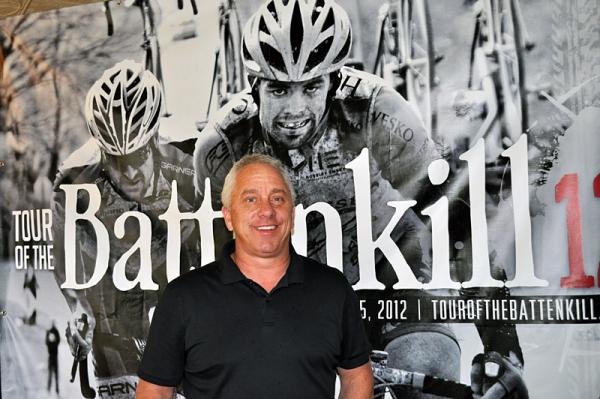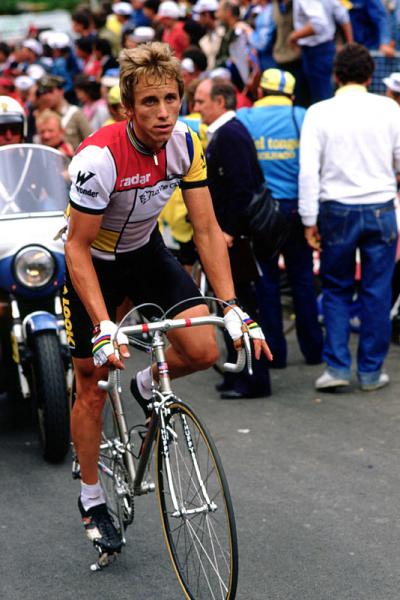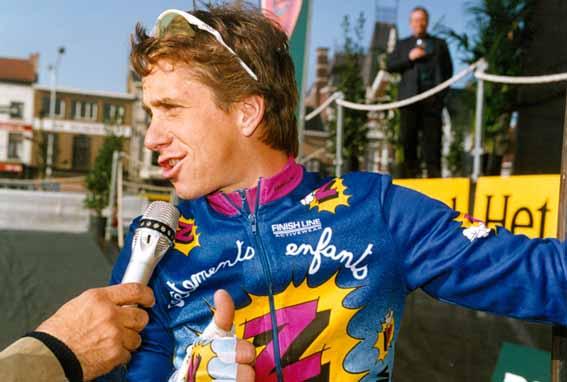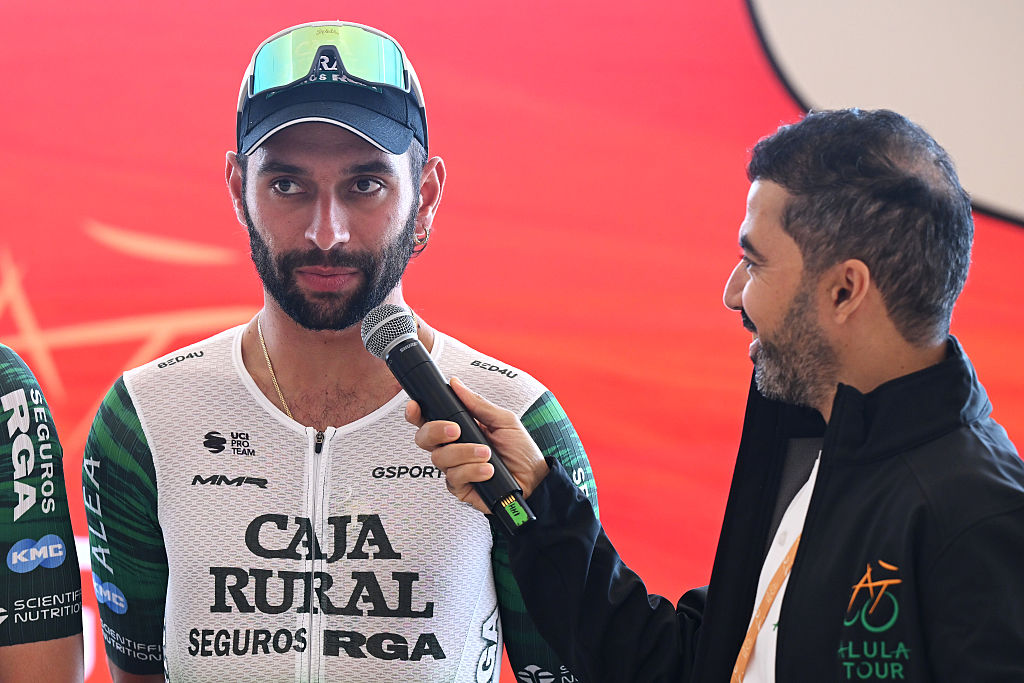LeMond: Armstrong has been trying to destroy me for 10 years
Tour winner speaks about the challenges ahead
The latest race content, interviews, features, reviews and expert buying guides, direct to your inbox!
You are now subscribed
Your newsletter sign-up was successful



Former three-time Tour de France winner Greg LeMond says that Lance Armstrong has been trying to destroy him for over ten years. The now outspoken anti-doping advocate made the claims during an interview with Irish radio Newstalk in which he spoke candidly about a number of topics including his abuse as a child, living with attention deficit disorder, Lance Armstrong and doping in the sport.
LeMond was on the show ahead of supporting ADHD (Attention deficit-hyperactivity disorder) Awareness Week and spoke of his battle through school and with learning difficulties. The American believes that he may not have made it as a professional if he had been diagnosed with ADHD as a child, but is thankful of the type of person it made him become.
"I’m a good, classic, star ADD [Attention deficit disorder] guy," LeMond told Newstalk. "ADD is not a bad thing. It’s just that in our culture we are made to get and up go to a classroom for eight hours a day with no activity and we are supposed to listen to a teacher talk and we are expecting kids to sit there, and behave and absorb. People’s brains aren’t really made for that. They are supposed to be outside, they need sunlight, and exercise and I’m kind of a guy who needs to be doing something to learn it. I can’t sit through a lecture."
"That’s one of the traits. It’s the inability to sit down [and listen] to something you are not really interested in and absorb it. If they are interested in it, people with ADD excel in really good ways."
"When I got into cycling I would say the sport itself took a fog off my brain. I was able to absorb stuff I read. It changed my life."
LeMond discussed coming to terms with being abused as a child and the embarrassment that he lived with whilst growing up and into his adult years. It wasn’t until recently that he decided to tell his wife of what happened so many years ago.
"There’s some things I’m ashamed of. I was abused as a twelve-year-old. I never told anybody, not even my wife, until I was about 42. That was really difficult and it’s something that took a lot of work to overcome," he said.
The latest race content, interviews, features, reviews and expert buying guides, direct to your inbox!
His ability to overcome his childhood difficulties has also made him the person he is today and that his strength in racing is also inherent in his current day to day life. In some instances, he knows it would have been easier to roll over but it’s something he just cannot do.
"I think part of my strength is facing adversity. I don’t run away from stuff. I might feel like it but I’m kind of a survivor. In cycling you can’t give up in races, even when you’re really dying in a race. I’ve won races because I don’t give up. It’s part of my make-up, I’m a skeptic, I don’t buy into BS and I really don’t like bullies or people who are thugs."
"I could have taken different tactics and maybe things would have been different in my life."
Destroying people
LeMond stepped away from the sport not long after retiring at the end of the 1994 season, but when Armstrong first returned from cancer he was like many, a believer. That was until he began to hear the rumours surrounding his countryman.
"I couldn’t be honest with myself. I knew too much from 2000 on," he said. "From 2001 and on I didn’t have anything good to say. I made up the logic in my mind that Festina Affair happened in '98 and it cleaned up. Somebody came back, they lost weight, that whole story I bought into. Then I started hearing rumours and the rumours were good observations from people within the sport. Then in 2000 I heard some disturbing stuff from someone in the team and it became impossible. I backed away from cycling at that point."
"In the months and years to come there is going to be a lot of stuff revealed. It’s going to be not just a black period for doping but it’s going to reflect on what others... He’s destroyed people and if you go against him, he tries to destroy you. He’s been trying that for ten years with me."
"It’s not about him, he’s always made it to be about him - that I’m jealous. I would have said the same stuff on other riders but I’ve never been asked directly, I’ve been asked directly by people but never directly threatened by other people. That’s where things change with me."
LeMond still feels bitter about having to formally apologise to Armstrong following his outspoken accusations and whilst he’s come to accept it, he still thinks he did very little to instigate such a legal response.
"I just said basically I was disappointed he was seeing Ferrari. But it’s those actions that speak louder than anything. Those people who tell you to 'shut up and walk away'. Those are the ones that are basically part of the problem. This is a great sport. This is my life. I truly dreamed of winning the Tour [de France] at 17 and I did win it and I’ve watched the sport and the people in it are not all bad. There’s a handful."
He also spoke about changing the way the UCI handles drug testing and of encouraging caught riders to reveal their sources, suppliers and methods. For LeMond to truly trust the sport, there are some things that really need to change.
"It’s about getting trust back into the system. It’s totally doable," he said.
"I actually went to see WADA to see if they would change their deal about plea-bargaining. I’d much rather have Floyd come out, admit it but give up his source. Somebody is giving those drugs to somebody. It’s usually a doctor or team manager and if they do that it leads to an outing of those guys.
"If that would have started in the '90’s, [Michele] Ferrari would have been out. [Francesco] Conconi would have been out - all these doctors. They are the ones that were doping riders in the '80s,'90s and they are still there. Those guys are the people who aren’t willing to change that need to go.
"Riders will play by whatever rules are there, but the rules need to be improved. The thing is to get the big massive oxygen drugs out of the sport where people can have a chance to win a race without having to dope themselves to the max."
Omerta
Being willing to speak out about the trouble in the sport is not an easy thing to do says LeMond, who understands that many riders remain silent not because of complacency but rather, fear.
"Just because someone isn’t out there being outspoken does not make them complicit because anybody who has stood up in the last 10 years has been destroyed in the sport. You would have to be an unusual character and go against the grain right now. It needs to come from the public, the consumer, the fans. They need to insist on the outing of the top brass. It needs to change. Drug testing needs to be separated from the governing body [the UCI] completely.
"I would buy into the UCI’s part much more in the sport if they would voluntarily help set-up an independent doping agency like USADA and WADA to where there is a real body of scientists that cannot be influenced by anybody. Not anybody."
"Any donations from anybody outside is absolutely unethical. It reeks of something that... what does that say to the other riders."
Despite everything, LeMond's love for cycling remains strong.
"I love the sport. Faith in the sport being totally clean? I’ve got to be realistic and say I don’t know if that’s totally possible. Oh, it’ll recover. The question is, do people really care? I think they do," he said.

